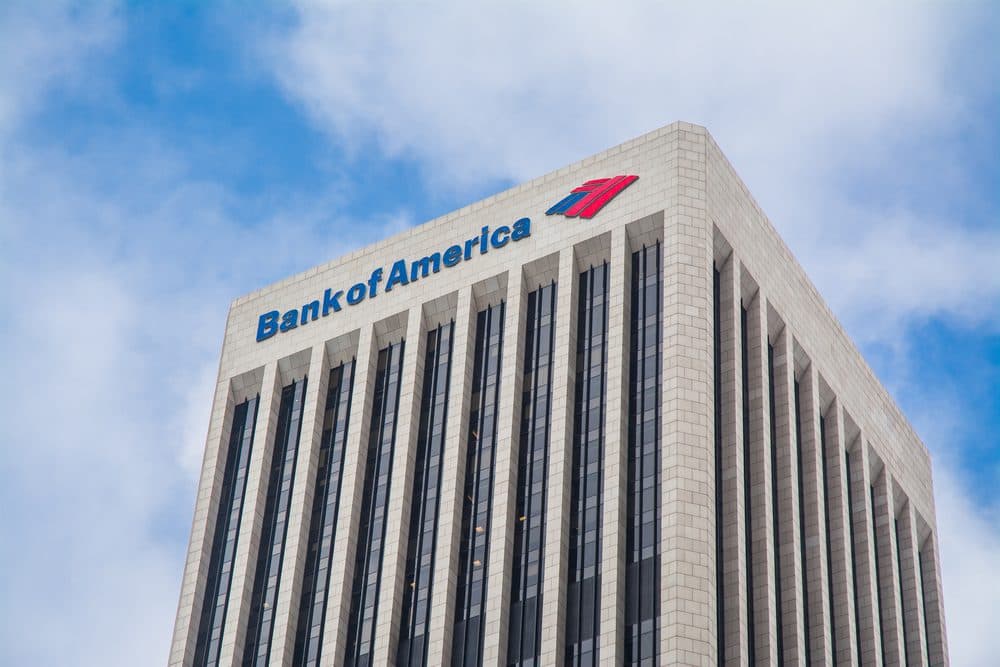Bank of America Reportedly to Allow Bitcoin Futures Trading
Bank of America is reportedly set to allow certain clients to trade bitcoin futures, a move that would represent another step into the crypto realm for the financial services stalwart. The Charlotte, North Carolina-based bank will be using bitcoin futures through […]

A Bank of America tower in Los Angeles (Source: Shutterstock)
key takeaways
key takeaways
- Report comes a week after bank set out plans to begin research coverage of cryptocurrencies and digital assets
- Bank of America will allow bitcoin futures through CME Group, which are cash-settled contracts based on the CME CF Bitcoin Reference Rate
Bank of America is reportedly set to allow certain clients to trade bitcoin futures, a move that would represent another step into the crypto realm for the financial services stalwart.
The Charlotte, North Carolina-based bank will be using bitcoin futures through CME Group, Coindesk reported Friday. CME’s Bitcoin futures contract is a USD cash-settled contract based on the CME CF Bitcoin Reference Rate (BRR), which serves as a once-a-day reference rate of the U.S. dollar price of bitcoin.
The futures that Bank of America is clearing don’t actually involve transacting in bitcoin.
A spokesperson for the bank declined to comment.
David Tawil, president of ProChain Capital, told Blockworks that the move shows that Bank of America is trying to keep pace with Goldman Sachs, which last month named Galaxy Digital the liquidity provider for its bitcoin futures block trades through CME Group.
The month prior, Goldman had announced a digital assets strategy that involves offering bitcoin derivatives to clients and opening a dedicated trading desk for cryptocurrency.
The news comes about a week after Bank of America planned to begin research coverage of cryptocurrencies and digital assets, according to an internal memo obtained by Blockworks. Candace Browning, the firm’s global head of research, called the space “one of the fastest-growing emerging technology ecosystems” in the note to colleagues.
Tawil said he doesn’t expect Bank of America to be a leader among its peers, adding that from the bank’s perspective, there is too much to lose and not yet enough to gain in the space.
“I expect that traditional Wall Street will try to get creative on how to benefit from crypto without diving in head-first,” he said. “It’s more likely that they will be forced [rather] than take the initiative.”
Sean Horgan, an equity research analyst at Rosenblatt Securities, recently told Blockworks that he believes digital wallets as a group are going to disrupt traditional banks over the next five to 10 years. Such competitors to the incumbent institutions include Square, which Mizuho Securities Senior Analyst Dan Dolev wrote in a July 15 research note could become “the money center bank of the future.”





